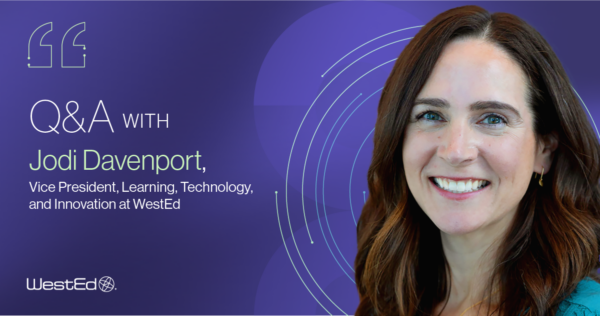This is a yearlong professional learning program that helps math teachers use generative AI effectively to enhance classroom teaching and learning. Designed for schools and districts with established professional learning communities (PLCs), this offering guides math teacher teams in exploring how AI tools can expand opportunities for rigorous, relevant, and responsive learning. With coaching tailored to your instructional improvement goals and AI policies, teachers will build expertise and confidence using technology that delivers measurable classroom impact.
How We Help
Our professional learning program helps schools and districts integrate generative AI into math instruction in ways that are meaningful, research aligned, and sustainable. Designed for K–12 schools and districts with established teacher PLCs, the program offers structured, yearlong support for teacher teams who are interested in utilizing AI to improve instruction.
Through a combination of coaching, curated tools, and collaborative protocols, we help educators explore how AI can enhance—not replace—high-quality teaching. Teachers learn to use AI to design rich tasks, differentiate instruction, and deepen student engagement with mathematical reasoning and discourse.
The program is grounded in mathematics education research and aligned with the instructional improvement goals of districts, schools, and teachers. Our coaching is also situated in respective state and local AI policy guidelines and tools. By centering teacher learning and SMART goals, we help schools and districts make the most of their AI investments while expanding students’ opportunities for rigorous, relevant, and collaborative learning.
Service Delivery
- Virtual
Who Will Benefit
- Mathematics teachers
- School districts

Ready to explore how AI can enhance high-quality teaching?
Connect with a WestEd expert.
"*" indicates required fields
Featured Experts
Lewis H. Hosie
Drew Nucci
Connecting Research With Practice
This program draws on a robust foundation of research on effective professional learning (Hill & Papay, 2022) and impactful PLCs (Perks, 2025). It is grounded in Principles to Actions (NCTM, 2014), emphasizing mathematical reasoning, discourse, and accessibility as elements of high-quality mathematics instruction (Jackson & Cobb, 2010). It also situates teachers’ impactful deployment of AI in their professional experience and judgment (Nucci et al., 2024) and builds on findings from the national AmplifyGAIN R&D Center.













